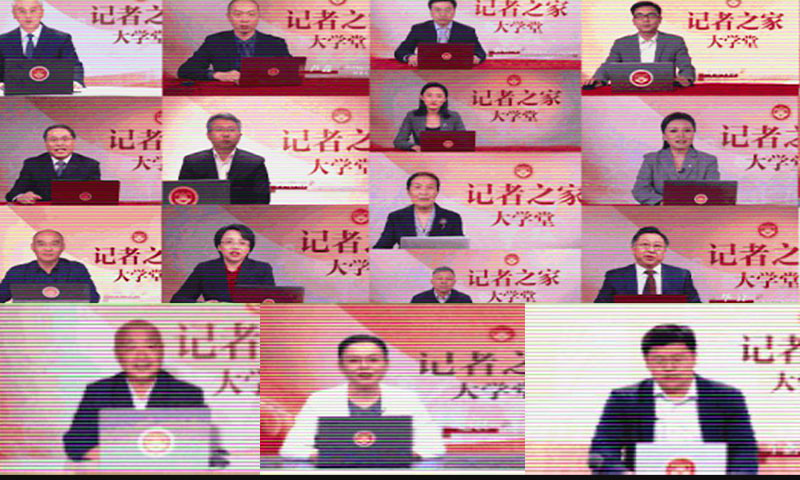In a recent report, Paris-based global press freedom watchdog Reporters Without Borders (RSF) warned of a new threat to press freedom in China: a new smartphone service designed to 'train' and even assess journalists for regime propaganda. The new tool has just been launched and will 'help' journalists pass the test of loyalty to Xi Jinping, the leader of China's totalitarian regime.
The report said that 'the All-China Journalists Association (ACJA), an organisation overseen by the Chinese Communist Party (CCP), recently launched a smartphone service, available on the WeChat platform, designed to “train” media professionals in the "Marxist vision of journalism", a concept that defines the CCP doctrine on media.
The service introduced on 30 June this year features at least 220 courses, and is aimed at “helping” journalists pass the loyalty exam to Chinese leader Xi Jinping, which is compulsory to obtain or renew press credentials since 2019. It is able to track users’ progress and issue training certifications, and it could also be used by media outlets to conduct journalists’ annual reviews, according to the report.
“Over the past decade, the Chinese regime has been conducting a true crusade against press freedom and the right to information, and this new smartphone service is yet another tool to brainwash and compel journalists to conform with state narratives. The international community should build up pressure on the Chinese regime to deter it from continuing its repressive policies and restore press freedom as enshrined in the country's constitution, said Cédric Alviani, RSF East Asia Bureau Director.
"In 2019, the regime launched a smartphone propaganda app available for the general public called "Study Xi, strengthen the country", which was also later used to test journalists' loyalty to the regime and their knowledge of its narrative, the report continued.
Since Chinese leader Xi Jinping took power in 2012, he has further tightened control of the Chinese state media, which are expected to “reflect the Party’s will,” while initiating a violent clampdown on independent journalists and applying unprecedented censorship and surveillance online, as revealed in RSF’s report The Great Leap Backwards of Journalism in China.
To support journalists working on China issues, RSF launched the training.rsf.org website in 2021, which covers physical safety, digital security, mental health, and reporting best practices, alongside its ambitious capacity-building and assistance programme that has already benefited more than 500 journalists covering China, the report further added.
China ranks 179th out of 180 in the 2023 RSF World Press Freedom Index and is the world's largest captor of journalists and press freedom defenders.
"Since 2008, China has either banned or made it very difficult for international journalists to travel to areas of increased control, such as Tibet and East Turkestan, allowing only a few select news reporters to cover the region under restrictive conditions with well-planned coverage of who and where," Yangchen Dolma, TPI Managing Editor.
"These selected journalists often ignored or feared covering the real situation and avoided meeting people who are risking their lives to speak out. However, these journalists were provided with lavish trips, which were featured on Chinese channels and newspapers for propaganda purposes, some of which were reportedly paid for by the Chinese government," she added.
Meanwhile, Tibetans in Tibet in their homeland are banned from travelling to any other country, and those who had been issued passports had them all confiscated in 2012, with strict conditions imposed on applications for new passports, or in many cases denied outright. The few Tibetans including students who were allowed to visit for educational or other short-term travel purposes had to obtain a guarantee from a high-ranking official or a parent with connections to a high-ranking official that they would not engage in political activities during their stay outside of China.


![Tibet has a rich history as a sovereign nation until the 1950s when it was invaded by China. [Photo: File]](/images/stories/Pics-2024/March/Tibet-Nation-1940s.jpg#joomlaImage://local-images/stories/Pics-2024/March/Tibet-Nation-1940s.jpg?width=1489&height=878)
















